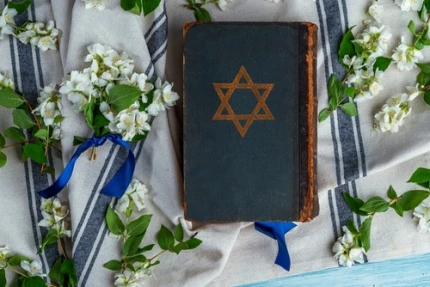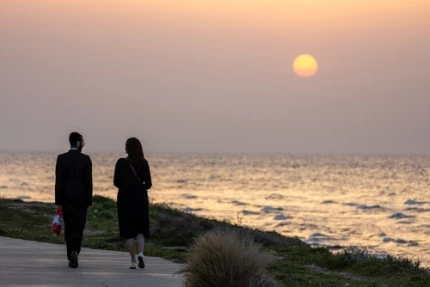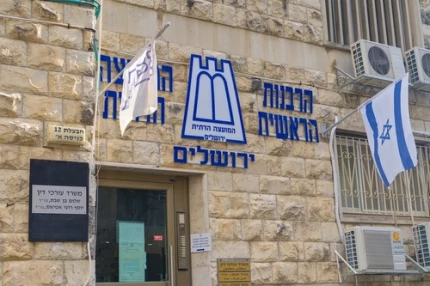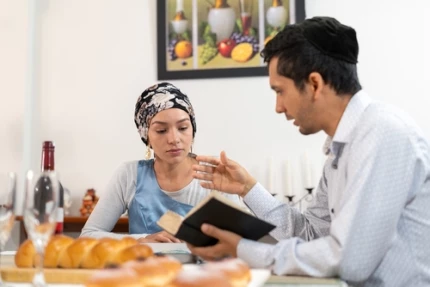Recognized conversions in Israel: Orthodox, Conservative, Reform
In a country where religion and state are deeply intertwined, the question of who is considered Jewish carries profound personal, legal, and political significance. For many seeking to join the Jewish people – whether for spiritual, familial, or personal reasons – conversion to Judaism is a complex journey shaped by centuries of tradition and modern legal frameworks.
an Israeli citizenship specialist
In Israel, conversions are not treated equally. While Orthodox conversions dominate the official religious landscape, Conservative (Masorti) and Reform conversions have increasingly gained recognition – particularly in the realm of civil rights, citizenship, and legal status under the Law of Return. This article explores the current legal standing of recognized conversions in Israel across the three main denominations – Orthodox, Conservative, and Reform – clarifying where they are accepted, what challenges remain, and what it means for those navigating the path to Jewish identity in the Jewish state.
Overview of conversion recognition in Israel
The question of recognized conversions in Israel is relevant for lots of people who wish to become citizens of this state. The procedure that suggests that a person accepts Judaism is named “giyur”. An individual that has completed it acquires a special document that confirms this fact.
If you are determined to go through the process of conversion, get acquainted with some materials or listen to lectures on the basics of Judaism. There are many sources available on this topic. Find a community of Jews in your area. Attend some classes there and learn the needed information on conversions.
Keep in mind that there are several different kinds of this religion:
- Orthodox;
- Conservative;
- Reformist (it’s also named “progressive”).
Conversion to Judaism suggests several steps. Candidates must provide a recommendation from a priest who guides them. The individual should convince the court of the seriousness of his or her intentions.
During the interviews that are necessary for conversions, the court will check your knowledge on faith. And will ask you the reasons for the conversion. If the cause of the decision is, for instance, a marriage to a person with Jewish roots, you can get a rejection. This reason is not considered important for recognition in Orthodox groups.
As for the giyur procedure, conversions include several stages:
- Circumcision, meant for male sex. It’s an embodiment of the union between the Creator and people of Israel. For the Orthodox, this ritual is a mandatory practice. However, the rule isn’t relevant for all kinds of Israeli religion. The Reformist type of Israeli faith doesn’t demand it. But sometimes, even if the procedure isn’t essential, it’s still performed.
- Immersion in the ritual pool. The procedure embodies cleansing. It’s meant for representatives of both sexes.
- The candidate receives a new name of Jewish origin. It’s considered that he or she was born again.
The process of giyur for women differs from the similar one for men in several aspects. In general, Israeli people suppose that it’s the woman who carries the so-called “Jewish gene.” She gives birth to kids and brings them up according to Jewish principles. Conversion of women to the religion of Israel is allowed. But it’s believed that ladies try to get recognition only to marry representatives of the Jewish nation.
A woman’s preparation for conversion differs from a similar process for a man. The training focuses mainly on family life, raising kids and running a household. A woman isn’t required to fulfill every commandment given to the population of Israel. Only aspects prohibiting certain actions are sufficient for conversions. For example, she mustn’t gossip or tell lies. Ladies also don’t need to learn all the prayers.
The other nuances of conversions in the Israeli religion are almost the same as for men. But because of the physiological characteristics of women, there are some particular instructions for conversions. First of all, a lady isn’t allowed to enter the ritual pool during menstruation. It’s necessary to take a shower before diving into the water. Her hair should be loose. A woman must thoroughly comb it. Before diving into the pool, a lady should remove makeup. It’s forbidden to apply any face or body cream. The rules are simple and familiar to everyone who visits a swimming pool.
Orthodox conversions and the Chief Rabbinate
During conversions to Conservative or Orthodox Judaism, a candidate must be interviewed by participants of the court. The members ask some questions that determine reasons to accept the faith and check knowledge on Israeli religion. In order to be recognized as a Jew, you must join the corresponding nation. By doing so, the candidates for conversions acquire some obligations and responsibilities. This is why the Talmud treats them as newborns.
Here are the basic principles of the Israeli faith:
- Everyone can receive help and guidance from the Almighty if they address Him.
- Every person is given a chance to select between righteous deeds and evil actions.
- Research on issues related to spiritual life and enriching one’s knowledge on this topic are encouraged.
- Family values and mutual assistance are always relevant.
- The Creator gave the land of Israel to the representatives of the Jewish nation. In return, He wants these individuals to serve as good examples. Therefore, the highest aim of life, according to the Israeli religion, is the transformation of the surrounding world. Conversion rituals emphasize it.
Representatives of rabbinic courts, known as the “beit din”, must ensure that the candidate will strictly adhere to the principles mentioned in the Torah text.
Conservative and Reform conversions under the Law of Return
Orthodox Jews typically don’t agree with the recognition of conversion procedures performed under the auspices of those who follow other Judaism types. Even if the Israeli customs are strictly followed. Those who support the Orthodox approach don’t offer or advertise lessons to candidates for conversions. They are also convinced that such classes approve relationships between people of different religions that aren’t traditionally approved by the Israeli environment. But in some Orthodox groups priests suggest lessons in small groups or individual programs for the ones who want conversions.

When the training is completed, the individual is not obliged to accept the Israeli faith. Moreover, the Reform approach offers the opportunity to attend services in Jewish churches. It is available even if the rituals connected with conversions were not performed.
Such an approach has been greatly criticized. People who are against it say that the acceptance of individuals who haven’t undergone the conversion procedure lowers the motivation to accept the faith of Israel. Another nuance that provokes a critical attitude to the Reform movement is the recognition of patrilineal descent of Jewish roots. It doesn’t correspond to the common principle according to which only individuals that have Jewish mothers are considered representatives of the above-mentioned nation.
The followers of the Reform kind say that the absence of strict obligations in the question of conversion and a welcome treatment to newbies elevate motivation. Moreover, the wish to bring up heirs in a Jewish lifestyle increased the desire of women to get recognition.
Supporters of another non-Orthodox kind, the Conservative one, are also open to changes and try to find a balance between traditional interpretation and modernity. This type is based on fairly liberal positions. Its followers consider that Jewish law must be transformed in accordance with contemporary realities. Such an approach to religion is somewhere in the middle between Orthodox and Reform movements.
It agrees that Torah is meant to unite individuals that possess Jewish roots. But it is assumed that a modern environment demands certain transformations of some customs and principles. For instance, those who support the Conservative approach believe that representatives of both sexes can sit together during church services. And the texts of some prayers should be altered.

The followers of this movement suggest a specific program for conversions. These lessons take place in a group. There can also be individual classes. When the training is finished, all the standard giyur rituals for conversions are performed. Then, the candidate for recognition has an interview with the participants of a beit din that consists of Conservative priests. Rabbis determine if the individual is ready to become a part of the Jewish society. Some priests that belong to this branch don’t accept the giyur rituals that were performed by their Reform “colleagues” if the person hasn’t achieved a sufficient level of knowledge concerning religious issues. It’s essential in case a representative of some other nation wants to marry a person that possesses Jewish roots. And was converted to the Israeli religion by a Reform priest.
In similar situations the Conservative rabbis accept the candidate if he or she performs the procedures for conversions that were omitted. Sometimes even people who accepted Judaism under the auspices of Orthodox priests got a rejection from the Conservative ones if it seemed that these candidates for recognition didn’t possess the sufficient level of knowledge. It’s not easy to predict how the situation with your recognition will develop. Much depends on the certain priest, your own circumstances and some other factors that influence conversions.
Legal challenges and Supreme Court rulings
As it was already mentioned, the representatives of the Orthodox type don’t accept conversion that was performed in accordance with the Reform or Conservative traditions. However, a new rule suggests that individuals who have undergone the process of giyur in Israel (even if it was performed according to non-Orthodox traditions) are considered members of the Jewish nation. They are given the right to get recognition and the citizenship of this state.
Considering existing rules, individuals of Jewish origin who have undergone the non-Orthodox process of giyur in Reformist and Conservative groups have the right to acquire the citizenship of Israel. These converts are granted the opportunity for repatriation, or aliyah (this word is translated as “ascent”). The new principle is mentioned in the Law of Return. The Supreme Court ruled it about 4 years ago. This decision has provoked a negative reaction from Israeli government parties that belong to the Orthodox type.
People from Jewish groups from other countries except for Israel, on the other hand, are convinced that the refusal to recognize the various kinds of Judaism is unreasonable and not respectful. It alienates people of this nation from Israel. And deprives many individuals of the equal opportunity to repatriate.
Implications for citizenship and personal status
The Israeli Interior Ministry doesn’t distinguish between the branches of Judaism during the recognition process that is considered necessary for a candidate to receive citizenship. Let’s see what is needed to apply for this procedure.
- First of all, get a document confirming conversion to the Jewish faith. Without it, you cannot achieve recognition or submit an application to the embassy for repatriation to Israel.
- Prepare other papers. These are letters of recommendation from the chairman of the rabbinical court and from the priest who supervised the procedure. As well as the curriculum used for training and a certificate confirming that the candidate has no problems with the law.
- Write an essay in Hebrew about your community and information about yourself.
- Collect the papers in which your identity is registered.
- Have an interview with the consul of the Israeli embassy at your place of residence.
- Submit an application to this organization. The documents are sent to Israel. The process of going through the giyur and your recognition must be confirmed on the territory of this state.
After completing all the above-mentioned steps, wait for a response. The decision concerning the Israeli permanent registry and citizenship for those who have applied for it is usually made in 45 days. But in some cases the candidates had to wait for a response from Israel for about 12 months. In case of refusal, it is recommended to consult an expert in the sphere of jurisprudence. Select a professional who has experience in solving problems linked with conversions.
an Israeli citizenship specialist

